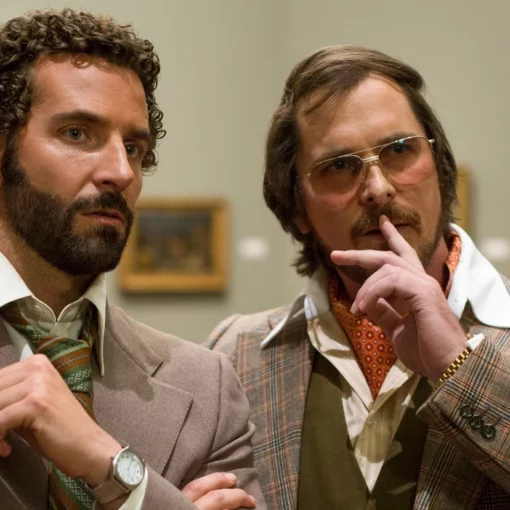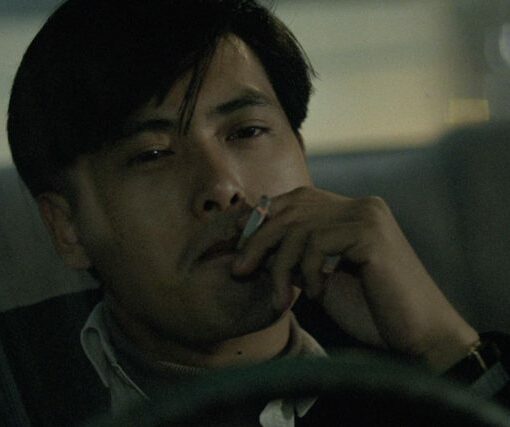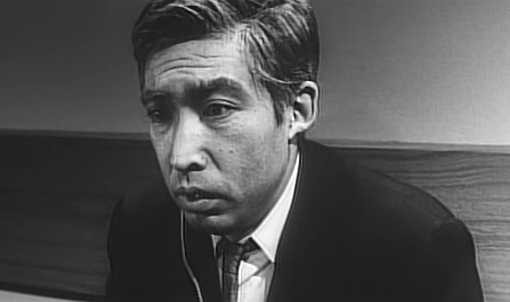Zombie movies seem to be the trademark of George Romero, but he also directed other kinds of films as well. In fact, he started his career as a director of TV commercials. His most prominent work from this era (which you can view in the Document of the Dead documentary) is a Calgon TV spot. It’s a parody of 50’s sci-fi movies and sells the advantages of the detergent pretty well. His experiences during this period would be useful in the future since he usually edited films himself and already knew how to convey messages within a limited time frame by doing a quick-cut style of editing. This is another thing I like about his movies. They usually have decent editing and it gets the audience to pay attention, even in the case of slower films like Day of The Dead. Anyway, today and tomorrow we’ll look at his non-zombie movies that are totally worth watching and there’s no better way to kickstart it than with his 1978 film Martin.
About 3-4 years ago, I reviewed this little-known Vampire flick on GCDB. At the time, I thought that it was the coolest film about vampires since it didn’t have an old man in a suit or a lame love story between a human, wolf and a vampire. It was beyond expectation and pretty dark. To tell you the truth, I didn’t watch Martin again until today. It’s been a long time, but other people’s perception about vampires are still the same. Long gone is the good old days of Bela Lugosi and Christopher Lee’s classic slow-build up of Dracula, right now we have either the pussified version (Twilight) or the version that’s still obscured by the clouds at Universal (He ISN’T officially announced as one of their new Dark Universe characters). De-construction of this folklore happens now and then like with Blade or John Carpenter’s Vampires (I strongly recommend this one), but none do it better than Martin. As I stated before, this is my all-time favorite vampire movie…and there are several factors which contribute to that.
Our hero, Martin (John Amplas), is sent to live with his older cousin Tateh Cuda in Pittsburgh. Martin looks shy and nervous all the time, but he’s not an ordinary young man. He believes that he’s a non-traditional vampire who likes to slash the arms of victims and then drinks blood, while Tateh (a strong Christian) tries to stop the evil of Martin in every way possible. From hanging garlic on the door to the classic crucifix trick, yet none of them harm Martin in the least. To make things worse, our poor Matin still feels isolated and needs blood from women in town.
The first thing many viewers wonder about after the film ends is whether Martin is a real vampire or not. There are many pieces of evidence that we’re supposed to believe like when Tateh shows the photobook of Martin’s vampire family or when Martin and Tateh coincidentally realize that our lead character was born in 1892. But the film still leaves some ambiguity and never reveals whether he’s just a maniac or what a vampire actually is. So, to analyze the motives of Martin, I’ll have to make two seperate choices here for readers to decide on…
1) Martin is a vampire: This could explain his loneliness much easier since he has been living for 84 years (according to the film) and he must see his lovers die and be taken away from him many times (like in the famous tear-jerker montage in Highlander). So right now he has no idea why he has to live anymore….
“For a long time, I didn’t care if they’d kill me. Most people spend their lives worrying about dying. For a long time, I wished I would die, Or I wished somebody would kill me. It’s been a long time for me…a long time full of crazy people.”
The only reason he has to live is to drink blood to stay alive. Also, the black and white flashback that we repeatedly see throughout the movie could be either something through his eyes of being a vampire or an event in the past that looks exactly like what happens in front of him now.
2) Martin is NOT a vampire: We may infer that he’s just a young man with mental problems. He’s had tough experience with his family or a childhood friend and, therefore, he has to escape it through these fantasies. The one he chose was the tale of vampire, but since he didn’t have fangs to bite helpless victims and other psychic powers, he has to inject sleeping chemicals into the victim’s body first and then uses razor to slit his/her arm in order to drink blood.
Martin enjoys doing crimes like this a lot (possibly in the same way that Alex harms people for fun in A Clockwork Orange), but in the end he still feels neglected by society since talking to other people may remind him of a bad childhood memory. Sometimes, he even fantasizes about what’s going on around him by seeing himself as a vampire in the 1800-early 1900’s…and that’s the reason for scenes in B&W intercut throughout the story.
Whether you believe the first or second theory, Martin’s vampire instincts lead him into danger twice. The first is when he works at Tateh’s grocery store as a delivery boy. One of his customers is a housewife who keeps cheating on her husband and she tries to seduce Martin as well, so one night Martin sneaks into her house and, to his surprise, he sees another man with her. After a thrilling chase around the house, Martin finally slashes her arm and drinks the blood. Another time is when Martin starts losing his ability to pick a girl to be his victim, either because he loses his vampire powers after making love with Mrs. Santini, another lonely housewife who’s awake while doing it (if you believe the vampire theory) or his mental state slowly gets better after he begins a relationship with Mrs. Santini (if you believe the non-vampire storyline). Sometimes after that, he targets two homeless men and has to flee from police.
But as I said, Martin’s nemesis is his cousin. Tateh and Martin have totally different opinion on magic and spirits. Here’s what Tateh says…
“People cannot come to other people’s beliefs. It’s hard for you, I know. It’s hard for anyone young. Do you believe that god’s whole world runs by the laws of the few sciences we have been able to discover? Oh, no, christina. There is more. But people are satisfied. They know so much, they think they know all. And that makes it easy for Nosferatu. That makes it easy for all the devils.”
And here’s Martin response to Tateh after he’s faced by his cousin’s old-school tactic to “kill” vampire…
“There isn’t any magic! There isn’t any magic! It’s just a sickness. […] It isn’t magic. Even I know that.”
Later on, he shows his impressive trick to Tateh’s cousin, Christina. After that he says…
“Things only seem to be magic. There is no real magic. There’s no real magic ever.”
That’s another theme in Martin: the clash between old and new ideology. Both characters stand strong and absolutely believe in what they think to be true. It unfortunately leads to the sorry fate of Martin in the end. I’m not going to tell you what it is because it’s definitely worth watching.
Another aspect here is the media. Instead of sharing problems or even having a conversation with Tateh, Christina, or anybody around him, Martin thinks it’s best to tell his story on a radio show. His narration in the film is basically a conversation between him and a local DJ. As you might guess, the station doesn’t see Martin as a real friend at all. They think of him only as a “good gimmick” that brings in tons of listeners. The fact that Martin trusts the media personality, who actually never cares about him, more than people in real life somehow reflects us in the modern era as well. We only trust things on TV just because it’s there, whether it’s true or not…and it’s pretty sad.
In the end, Martin is a stunning film. Whether you view it as a vampire, coming-of-age or slow-build Horror film, this sad story of a young boy and his ambiguous past will captivate you. It’s totally different from other Exploitation Films from the same era. In fact, if your friend is a hipster who’s totally into indie films and you want to get them into the world of sleazy flicks from the past, this is a good way to introduce them since it has an effective storyline and many characters who are morally vague, from Martin to the lonely housewives. Highly recommended.
Next time, the last entry of our Deadicated To George A. Romero is another non-zombie cult-classic: Knightriders (not to be confused with David Hasselhoff’s TV show).









